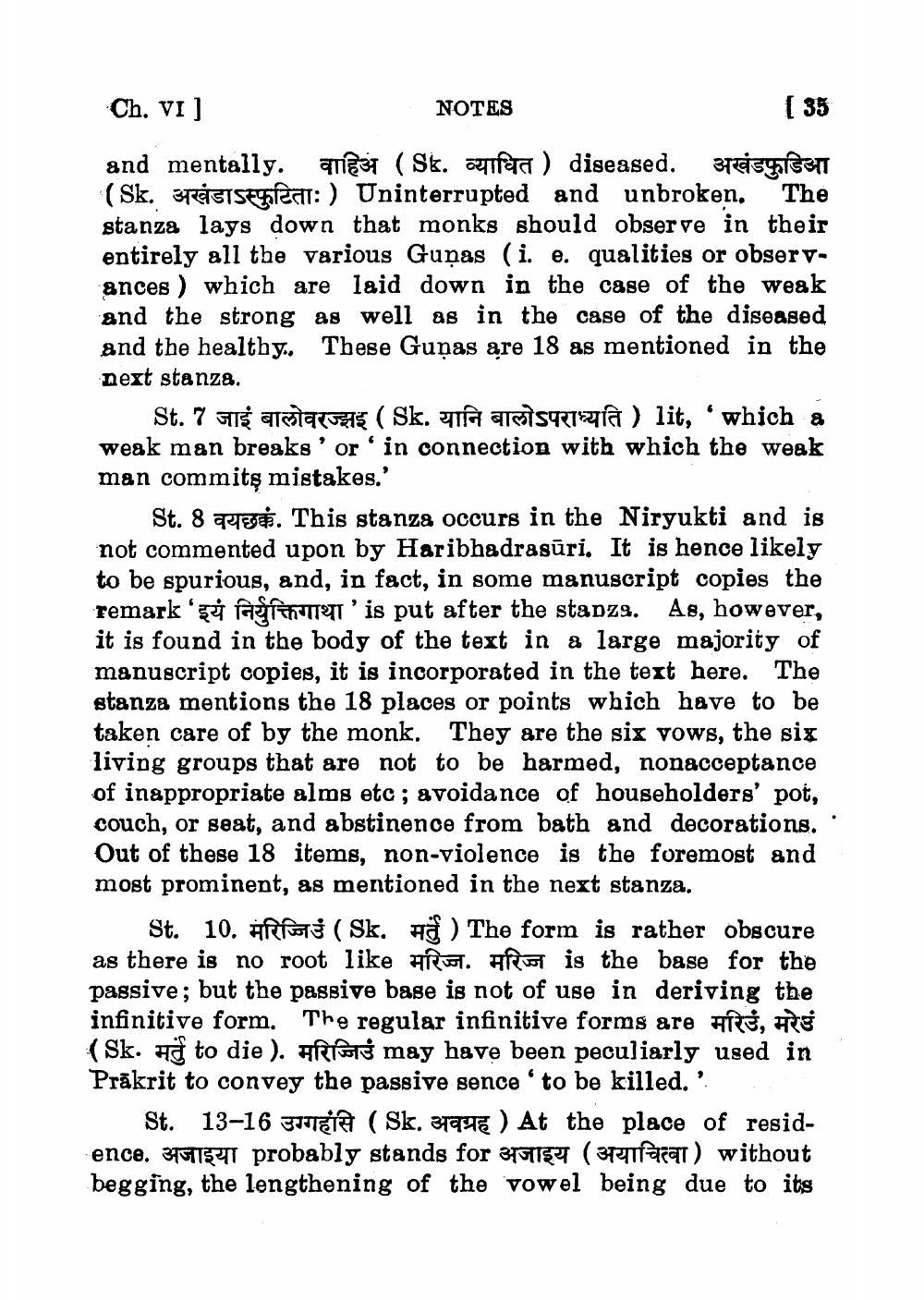________________
Ch. VI ]
NOTES
( 35
and mentally. वाहिअ (Sk. व्याधित ) diseased. अखंडफुडिआ (Sk. SPETSERFEST: ) Uninterrupted and unbroken. The stanza lays down that monks should observe in their entirely all the various Guņas (i. e. qualities or observances ) which are laid down in the case of the weak and the strong as well as in the case of the diseased and the healthy. These Guņas are 18 as mentioned in the next stanza.
St. 7 alla (Sk. Ta ainsi ) lit, 'which a weak man breaks' or 'in connection with which the weak man commitş mistakes.'
St. 8 248. This stanza occurs in the Niryukti and is not commented upon by Haribhadragūri. It is hence likely to be spurious, and, in fact, in some manuscript copies the remark's faith i ' is put after the stanza. As, however, it is found in the body of the text in a large majority of manuscript copies, it is incorporated in the text here. The stanza mentions the 18 places or points which have to be taken care of by the monk. They are the six vows, the six living groups that are not to be harmed, nonacceptance of inappropriate alms etc ; avoidance of householders' pot, couch, or seat, and abstinence from bath and decorations." Out of these 18 items, non-violence is the foremost and most prominent, as mentioned in the next stanza.
St. 10. ARPETS ( Sk. HD ) The form is rather obscure as there is no root like मरिज्ज. मरिज is the base for the passive; but the passive base is not of use in deriving the infinitive form. The regular infinitive forms are मरिउं, मरे (Sk. Hd to die ). AfTots may have been peculiarly used in Prākrit to convey the passive sence ' to be killed.'
St. 13-16 GITTEET ( Sk. 3194) At the place of residence. अजाइया probably stands for अजाइय (अयाचित्वा) without begging, the lengthening of the vowel being due to its




